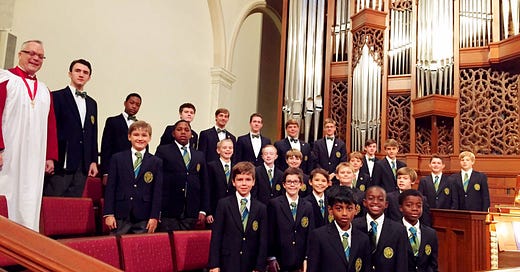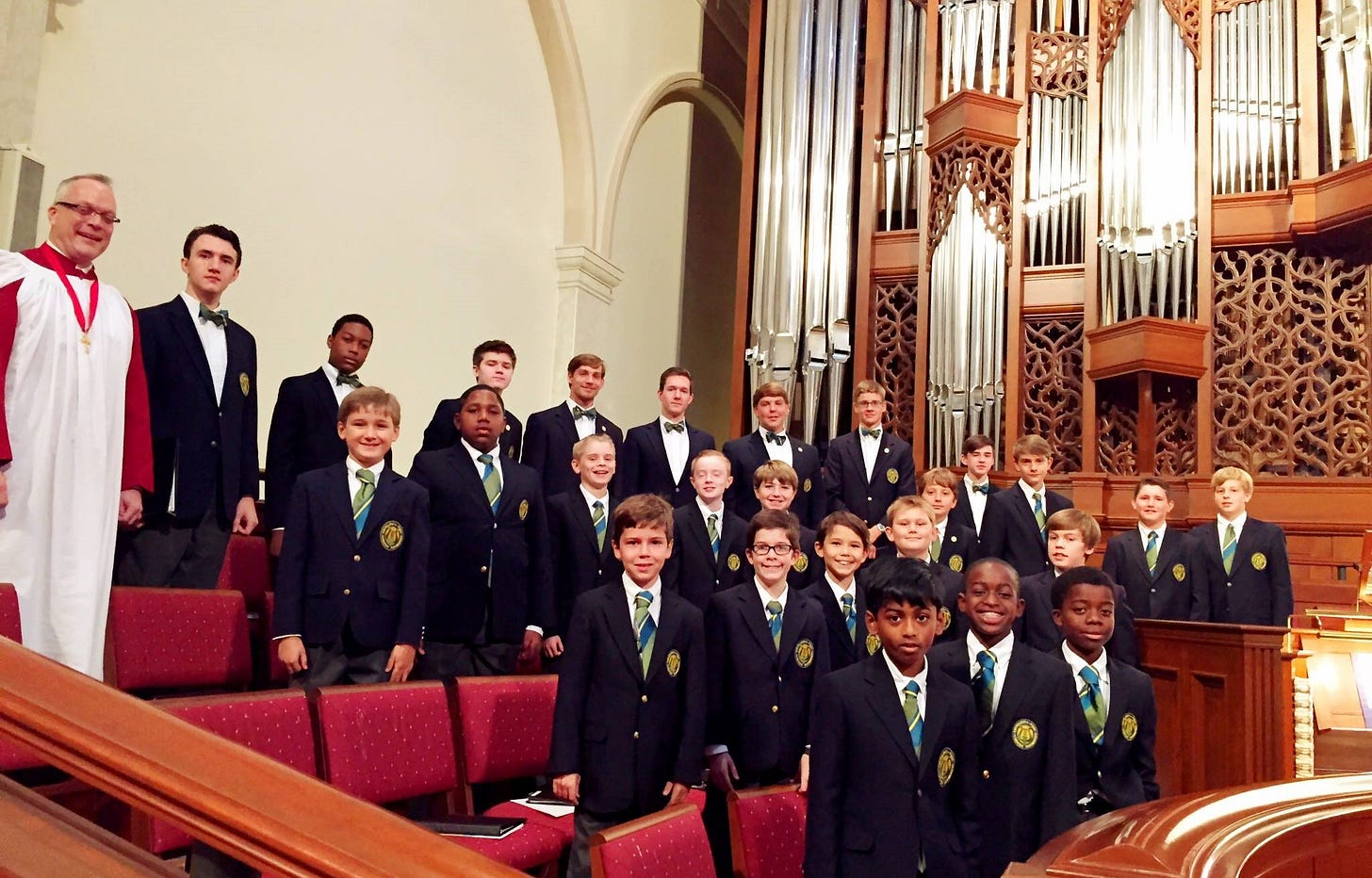If somebody were to ask me to name the main feature of old hymnals that appears to me to be lost in the new, I think I’d look to poetic quality first, and then to the thoroughness and subtlety of Scriptural vision, but third on my list would not characterize any single hymn — rather the composition of the whole hymnal. It would be this: “Paint with the full palette.” For human life has its light and its shadow; we laugh, and we weep; we stray in a far country, and we seek our home again. Hence our Hymn of the Week, Come, Ye Disconsolate, with its lovely melody that mingles sadness with quiet confidence: we go in the last line from high E down to C, calmly, without any unusual harmony, step by step. It’s an excellent hymn, too, to follow the story of the Prodigal Son, which we looked at yesterday. And who was the author of the first two of its three stanzas, but that same Irish poet Thomas Moore, author of our most recent Poem of the Week?
It won’t do, I think, to pretend that everybody must be chipper and bright all the time. Real joy is to be found also in the thoughtful and the solemn. Why should there be more rejoicing in heaven over the return of one lost sheep, than over the ninety nine who were never lost? As if there were any one of us from the ordinary stuff of mankind who has never been lost! The father in Jesus’ parable would not be so sour as to upbraid the Prodigal Son, reminding him of his past sins every so often in order to keep him down. But the boy would remember it. I remember my own wandering off into a far country, and those memories make me all the more grateful for the mercy of God, who did not abandon me to my own devices. Imagine a lone violinist in the night, making the instrument sing in a minor key, so as to touch the heart of man and say, “Here too is a heart that feels what you feel.” That’s a color in the palette, so to speak. And if you don’t have that color and others like it, people may get the wrong impression, that to worship God, and to have faith in his boundless mercy, you must always have a gleeful smile pasted on your face. They may say, “I can’t do that.” And nobody should expect them to.
The third stanza of our hymn was written by one Thomas Hastings, himself an author of hundreds of hymns, and for forty years the leader of various church choirs in New York City, till his death at an advanced age in 1872. I’m not familiar with his work, but as I look down a long list of the hymns he wrote, I notice quite a few titles that speak of that wistful longing for home, including “Return, O Wanderer,” inspired by the parable of the Prodigal Son.
Then there’s the composer of the melody, Samuel Webbe (1740-1816). You may know his melody Rockingham, for the beautiful hymn When I Survey the Wondrous Cross. Webbe had a remarkable childhood and youth, which I’d like to take note of here. His father died when Samuel was a baby, so when the boy turned 11, he had to leave school to work to help support his family, as an apprentice to a cabinet maker. But he wanted to learn, so while he was an apprentice he taught himself Latin, Greek, Hebrew, French, German, and Italian, evidently with the aim, early on, of studying Scripture in the original and learning as much as he could about music. He’d made that determination when something that changed his life occurred early in his apprenticeship. The cabinet maker set the boy to repair the case of a harpsichord. Samuel made the repairs, and as he was working on it, he taught himself how to play it — don’t ask me how; but the history of musical genius is filled with such incidents. He went on to write music of his own, plenty of it, both sacred and not, and to be in the forefront of the revival of early chant and plainsong in England. How that story, with its darkness and light, seems to arise out of a different world!
We usually like to feature a version of our hymn set for a congregation, but today Debra found this very moving performance by the Georgia Boy Choir to share with you.
Come, ye disconsolate, where'er ye languish, Come to the mercy seat, fervently kneel; Here bring your wounded hearts, here tell your anguish; Earth has no sorrow that heaven cannot heal. Joy of the desolate, light of the straying, Hope of the penitent, fadeless and pure! Here speaks the Comforter, tenderly saying, "Earth has no sorrow that heaven cannot cure." Here see the Bread of life; see waters flowing Forth from the throne of God, pure from above: Come to the feast of love; come, ever knowing Earth has no sorrow but heaven can remove.
Thank you for joining us at Word & Song.





Was it not Our Lady who said to Saint Catherine Laboure “Come to the foot of the altar…” Let us always boldly draw near to the throne of grace to find comfort and help. We will never be turned away.
Thanks for this post, including the beautiful choral version. As I listened to it, I prayed the lyrics would come back to many of these boys when they face the inevitable sorrows of life.